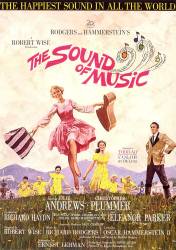
Question: Gretel was 5 years old and the mother died seven years ago. Who is Gretel's mom?
Answer: However when Captain Von Trapp gets the children to step forward and introduce themselves to Maria he states that their mother died 7 years ago.
Not in the 1965 film, perhaps in another version. In the 1965 film the only thing he says about his late wife when he first meets Maria is "you'll be the 12th governess...since their mother died." When he has the children introduce themselves, he only advises Maria to pay attention to their signals and names. Later after he leaves and the children say how old they are, Marta says "I'll be 7 on Tuesday."
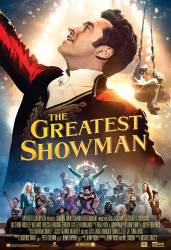
Question: Why was Zendaya considered as one of the "freaks" (like they called them), even though she looked normal?
Answer: I'm pretty sure because she was a person of colour.
Answer: Her brother said people of the time didn't want to see colored people on the stage. It's clear throughout the entire movie that she faces undue discrimination from the public just for not being white.
Answer: There were other people in the circus who were just normal but had amazing abilities.
She was half black and half white.
Answer: Because her actress, Zendaya, is mixed race (part African American and part Caucasian American), and Anne is either that too or African American (either way, she would have been ostracised at the time the movie is set), and so Anne would have been seen as a freak for that reason.
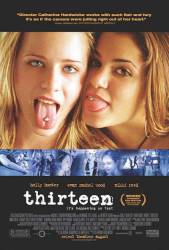
Question: I read that Evan Rachel Wood's character, Tracy, is supposed to be Nikki Reed at the age when she was having the experiences that Tracy went through. Was the character Evie based on a girl that Nikki knew in real life?
Answer: Evie was based off several people in Nikki Reed's life.
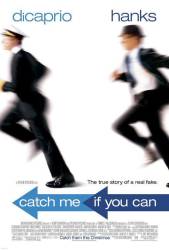
Question: What is the name of the airport that is featured during the ending scene in which Carl is following Frank and tells him "Nobody's chasing you" ? Or at least, what airport is it supposed to be?
Chosen answer: It is not mentioned, though it is likely Reagan (at the time Washington National) or Dulles, as they both work in Washington DC.
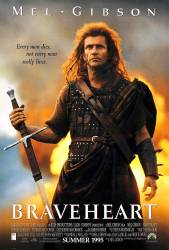
Question: Why does Wallace spit out the pain killer that the princess gives him?
Chosen answer: Just like he said, it would dull his wits and not leave him fully lucid the next day when he had to face the torture.
He wanted his full awareness so he didn't accidentally yell for mercy.
Answer: Because it's a reference to what his Father's last words to him were at the beginning of the film before he was killed, 'I know you can fight but it's our wits that makes us men'. That's why Wallace says to the Princess, 'It will dull my wits and I must have them always'.
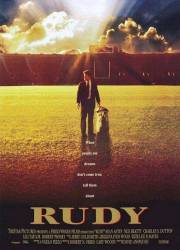
Question: What is the name of the actor who plays Notre Dame player 75, last name Mateus? I can't find him in the credits. He's the guy who starts chanting "Rudy" during the Georgia Tech game. I know Al Snow aka Allen Sarven plays an uncredited Notre Dame player in the movie, but it is not him - I have seen pics of Al Snow, and he is NOT the guy. There is more than one uncredited Notre Dame player in the film. (I have posted this question before, and the reply was Al Snow, so please don't answer this unless you actually know who the actor is. Thank you.)
Answer: According to the Trivia section (as well as some web searching) it seems to be Peter Rausch, an ex-Notre Dame football player.
Answer: Peter Rausch had already completed his NCAA eligibility by the time the movie started filming. He can be seen wearing the number 75, starting the "Rudy" chant from the field. His character's name is "Steve."
Answer: His real last name is Mateus. He and several Western Michigan University football players were cast in the film. I know this for fact because I worked at Scott's iron Campus in Kalamazoo, Michigan. He and several of his friends were close friends with the owner and were in the restaurant almost daily. They also built a loft bed for me in the dorms.
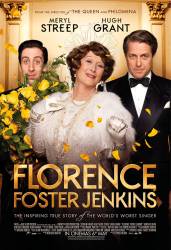
Question: Every time Florence would perform before a live audience, people would respond by either laughing at her or booing at her. With these kinds of reactions, how could Florence not realise that it was because nobody liked her singing and that they considered her a terrible singer?
Answer: People believe what they want to believe and can have an uncanny ability to filter out anything negative or unwanted. Eventually, she realised the truth.
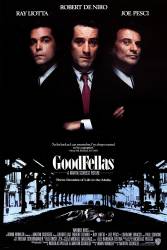
Question: In the scene where Tommy believes he is being made, right after he walks into the room you hear him say "Oh no!" right before he is shot. Tommy obviously realizes that he was set up. However, what is it that he sees in the room that tips him off?
Answer: He was expecting a crowded room full of friends congratulating him. Also it was common knowledge among the mafia that being walked into an empty room when you were due to be made meant you were about to be executed, so Tommy likely knew he'd met his end just moments before the shot.
Answer: A man being 'made' is an event shrouded in ceremony. The top people in the family are there, among others to congratulate the new soldier. Tommy walked into an empty room.
Just as others have pointed out, the film implies Tommy realised something was wrong the moment he walked in and saw the place was empty...no other "made men" there for the ceremony. However, I always wondered why he hadn't caught on to what was happening when he saw there were only a couple vehicles parked out in the driveway.
Answer: Either the fact that the room was empty (being made is a big ceremonial event with many people) or he felt the gun pressed against the back of his head right before they shot him.
Answer: There should have been more people waiting for him.
Answer: Wasn't the floor covered with a plastic sheet? That would have given it away.
Or it was a floor with no carpet (tiled, I believe)...easier to mop up.
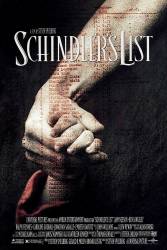
Question: Does anyone know the name of the song which is playing on the radio in the beginning of the movie, when Schindler is getting dressed for the party?
Answer: "Gloomy Sunday".
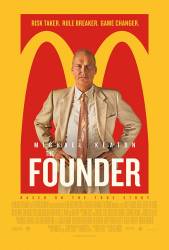
Question: Two questions are puzzling me. 1. Considering the tactics that Ray used to take control of McDonald's from the brothers, couldn't it be said that he cheated and conned the brothers out of their restaurant? 2. When Ray visits Mac in the hospital, he offers him a blank check to which the brothers agree. Why would they agree to such a thing instead of fighting to get their restaurant back?
Answer: 1. Yes, he pretty much cheated them out of their restaurant, royalties, intellectual property, etc. 2. Ray elaborates on this towards the end of the film when is on the phone with them. He's generated so much revenue from his real estate venture that he can afford to tie them up in court for years and drown them in legal fees if they decided to sue him for breach of contract. This is why they decide to surrender the company and everything that came with it in exchange for $1 million each and 1% perpetuity, the latter of which they never received.
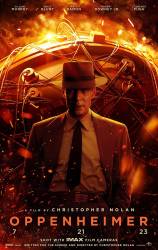
Question: Were the scientists involved really concerned about igniting the atmosphere?
Answer: The short version is "no, not really". Much like in the film, the possibility was considered, a lot of calculations were done, and it was agreed by everyone privy to them that the chance was basically zero. Also like in the film: "what do you want from theory alone?" - it couldn't be guaranteed to be absolutely zero, but then the chance of almost anything happening is never absolutely zero. A 1946 report by three of the scientists stated: "whatever the temperature to which a section of the atmosphere may be heated, no self-propagating chain of nuclear reactions is likely to be started. The energy losses to radiation always overcompensate the gains due to the reactions."
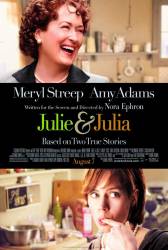
Question: Julie starts getting "stuff" in the mail from her readers. But when you do a blog, you wouldn't put your address in there, would you?
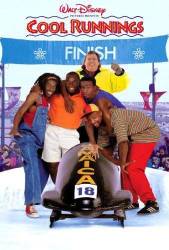
Question: Is it true that the Jamaica bobsled team performed poorly at first during training as shown in in the film?
Answer: The real Jamaican team performed poorly throughout the Olympics and did not finish.
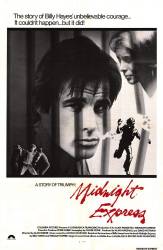
Question: What has ended up with Max? Billy promised to go back and release him, but we never see that happen, and no explanation is given for that in the Epilogue. Is Max a real figure? If he is, what has happened to him? Did he manage to escape, or did he die in prison?
Answer: Max WAS a real character, and a Dutchman in real life, rather than an English one as portrayed in the movie. He eventually got paroled and later treatment for a severe drug addiction he had too.
Answer: It's never stated what happened to Max. The film was a heavily fictionalized version of Billy Hayes' book, and the Max character appears to be fictional as well or at least a composite of other real-life imprisoned Westerners that Hayes met while in a Turkish prison.
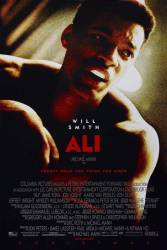
Question: What's the name of the song playing at the end, when Ali defeats Foreman, and also when Ali is running through Zaire?
Answer: The song at the end is called Tomorrow by sauf keita. Its on the soundtrack and is the same one when Ali is running through zaire.
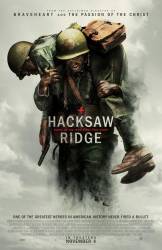
Question: In the first combat scene, we see the big climbing net already in place. Who put the net up in the first place and how would that have been done? And why would the Japanese not simply cut it down after the first fights when the US troops retreated?
Chosen answer: US troops put the net up (in reality the ridge isn't as tall). The Japanese were fighting a defensive battle from heavily fortified positions on a reverse slope, and it suited them to have the Americans attacking from that point. The Americans also used ladders on other parts of the escarpment.
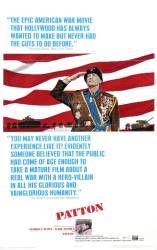
Question: During the slapping, what did George mean when he said send him up to the front?
Answer: "The front" means the front line, i.e., where the enemy is being engaged. He's saying that since the soldier isn't physically injured, he should be fighting, not (as Patton sees it) being a coward and shirking his duty.
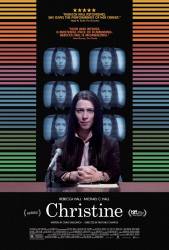

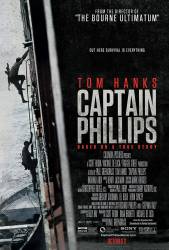
Answer: In the film, the Mother Abess explains to Maria that the Captain Von Trapp's wife died "several years" ago. This is commonly misheard by viewers as "seven years." In reality, the actual mother of the Von Trapp children was Agathe Whitehead, who died of scarlet fever in 1922, just four years before Maria came to the Von Trapp home, initially as a tutor (not a governess) in 1926.
Michael Albert